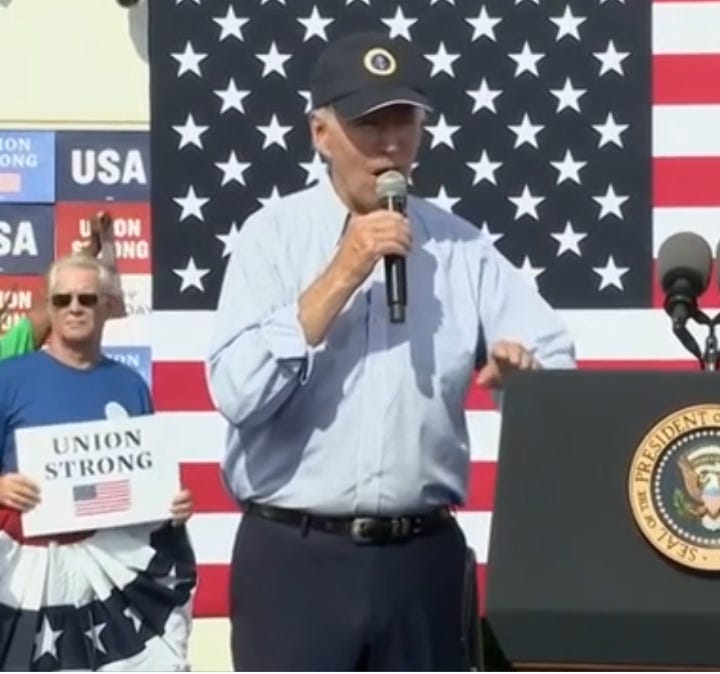Administration Running Into Trouble Selling ‘Bidenomics’
President running into headwinds trying to convince voters of his economic stewardship
President Biden and others in his orbit have been working overtime in recent weeks to package his economic record and the spate of continuing positive statistics on the US economy as “Bidenomics” ahead of next year's presidential election.
But they're finding that voters aren't entirely getting onboard.
Biden and his advisors have been trying to essentially brand positive and improving numbers in job creation, unemployment, inflation and more under the “Bidenomics” moniker so as to maximize the credit the president gets before he faces voters for a second term.
However, despite objectively good numbers in many economic categories, the message too often is falling flat.
“All I hear from my friends on the other side — what they say is wrong with America. They keep telling us America is failing. They’re wrong,” Biden said Monday in a Labor Day visit to Philadelphia Pa. “I’ve got news for them. America has the strongest economy in the world right now, today; the lowest inflation rate among any major economy; 13.5 million new jobs.
“And there’s no one reason for it. It’s not because of me, although a part — our [policies] have helped. And not just the Democratic Party. It’s you. I mean it sincerely,” he added. “Not a joke. It’s the American people — your grit, determination. You never quit.”
A new poll from The Wall Street Journal finds 58 percent of voters say the economy has gotten worse over the past two years, just 28 percent say it’s gotten better, according to CNN host Brianna Keilar.
“Yeah, not everybody is sold on Biden’s plan. In fact, he is struggling to convince voters that his administration has been good for the economy,” she said.
“Bidenomics” has not been breaking through, agreed Eugene Daniels, White House correspondent for Politico.
“This is a White House that has been talking about what they have done for the economy, and they know, and they will admit and have admitted that people aren’t all feeling that, right, and so you have to find a way to get Americans to feel better about the economy,” Daniels said. “This has been true for politics for a very long time. Especially presidential politics, how people feel about the economy is how they’re going to vote.
“If people go in next November, and they’re feeling like the economy has done nothing for them, they blame Joe Biden, they’re likely to vote for someone else, and this is an administration and a campaign that knows that,” he added.
Political polarization — and baked-in Republican antipathy towards Biden — makes registering economic sentiment more difficult, according to an economist.
“It’s gotten to the point where it’s almost pointless asking Republicans how they feel about the economy; only 7 percent of them were willing to admit the economy had gotten better over the past two years,” said Justin Wolfers, professor of economics and public policy at the Gerald R. Ford School of Public Policy at the University of Michigan. “So I think when we ask these questions, people are no longer telling us how they feel about the economy — really they’re telling us how they feel about the president.”
This is despite the fact that Republicans themselves have no economic message themselves, going into 2024, according to an advisor to members of Congress and other politicians.
“I think one of the challenges is that Republicans have put nothing on offer except tax cuts for the wealthy as their solution to all of the challenges that we are discussing,” said Laura Fink. “All of the frustrations that Americans are feeling right now.
“So what one person may see as a rejection of ‘Bidenomics’ actually when you look at the alternative and you see absolutely nothing coming out of that debate this past week,” she said, referring to the first debate among candidates vying for the Republican nomination for president.
Please support our work…
Please subscribe…




